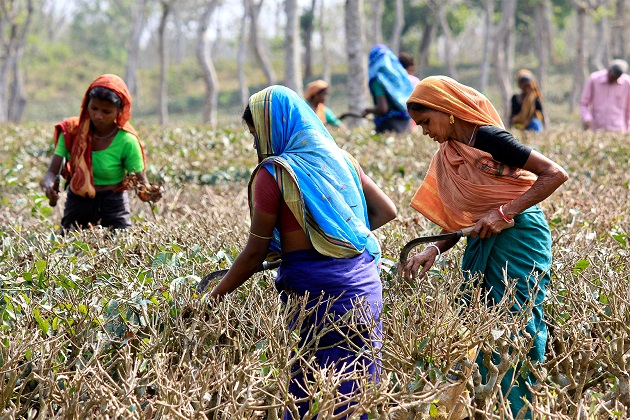For long, cucumbers and pumpkins remained the only popular squash vegetables in Bangladesh. When Bangladesh Agricultural Extensions introduced zucchinis to farmers in the late 1990s, there was some confusion among both farmers and consumers regarding the cultivation and uses of this new type of squash. However, zucchini squash has now gained
Author: Farhana Parvin
Bangladesh’s olive ridley turtle breaks 4-year record with 53pc rise in eggs
This year, Bangladesh has seen its highest number of olive ridley turtle eggs, thanks to extensive conservation actions, including building awareness among local people and the vigilance of local conservation groups to ensure favorable conditions for the species. Nature Conservation Management (NACOM) found 12,425 eggs in five turtle hatcheries — Pachar
Bengal tigers still struggling despite investment in conservation
Due to inefficient and inadequate measures, Bangladesh lags in achieving success in tiger conservation despite having dedicated significant funds to the effort over the last two decades. According to data extracted from projects undertaken by the government and nongovernment organizations, the country has allocated $11 million to tiger conservation to date.
Herbicide used in Bangladesh tea threatens biodiversity & health
Tea has been an integral part of Bangladeshi life for long. From breakfast to evening chat, tea is a favorite drink to serve. Besides Bangladesh, tea is among the most popular drinks in countries like India, China, Japan and the United Kingdom. During British colonial rule, the first tea production in
Court order fails to stop poison fishing in Bangladesh Sundarbans
It’s long been known that many people depend on the world’s single largest mangrove forest, the Sundarbans, for their livelihoods, as the forest naturally provides resources including fish, crabs, honey and timber. In order to maintain a balance between resource extraction and forest health, the Bangladesh Forest Department has been
As Bangladesh’s crab fishery booms, its wild stocks suffer the fallout
Abdus Sobur is a small fisherman with a simple formula for success: “Catch those mud crabs, both male and female, and sell them to the local dealer at a high price.” Sobur’s fishing grounds are Bangladesh’s Sundarbans, the world’s largest mangrove forest, where he catches 40-50 kilograms (88-110 pounds) of crabs
As Bangladesh’s crab fishery booms, its wild stocks suffer the fallout
Abdus Sobur is a small fisherman with a simple formula for success: “Catch those mud crabs, both male and female, and sell them to the local dealer at a high price.” Sobur’s fishing grounds are Bangladesh’s Sundarbans, the world’s largest mangrove forest, where he catches 40-50 kilograms (88-110 pounds) of crabs
Bangladesh orchid losses signal ecological imbalance
Among the 188 identified orchids once found in Bangladesh, 32 are extinct from nature in the last few decades, according to a study published in the now-defunct International Journal of Ecology and Environmental Sciences. The Revelator also published a story based on the findings. Theocostele alata, Anoectochilus roxburghii, Habenaria viridifolia and
Bangladesh ramps up freshwater fish conservation
The Bangladesh government is ramping up efforts to boost populations of commercially important freshwater fish species, including captive breeding of species at threat of extinction. Fish like tengra, shing, magur and gulsha have long been familiar to households across Bangladesh, thanks to their central place in the national diet and their
New red list of plants shows country lost seven species
Bangladesh has over the last century lost seven plant species that once occurred in the country, and now risks losing at least another five, according to the first-ever comprehensive assessment of the country’s plant life. The new national red list identifies the species that have been extirpated as fita champa (Magnolia



